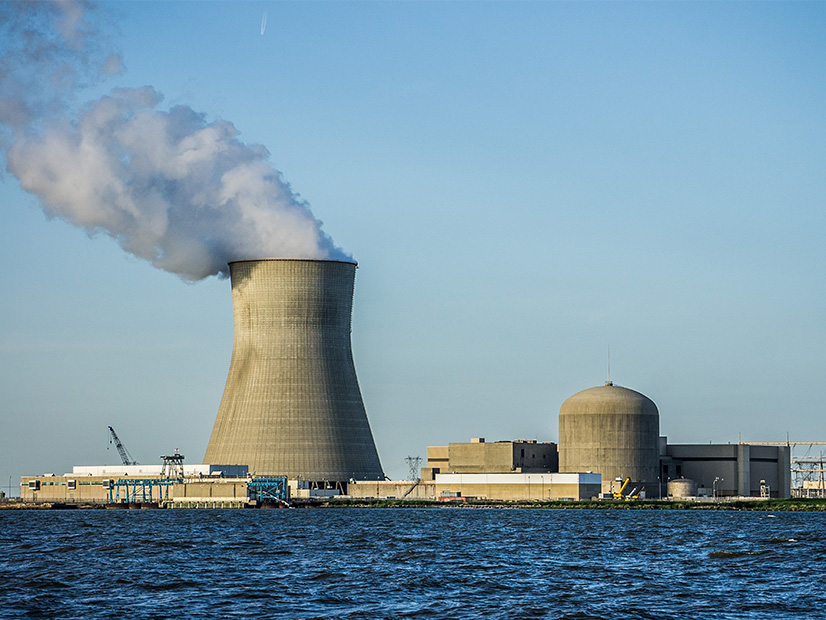PSEG is urging the U.S. Treasury Department to speedily release rules for the program that could provide Production Tax Credits to support the utility’s three South Jersey nuclear plants, but the effort has yet to yield results, CFO Daniel J. Cregg said in the company’s fourth-quarter earnings call Feb. 26.
Cregg said the utility last spoke two months ago to Treasury officials about the PTC program; it is part of the Inflation Reduction Act, and it awards tax credits of up to $15/mWh for electricity produced by existing nuclear plants. PSEG is the sole owner and operator of the Hope Creek plant and the operator and majority co-owner of Salem 1 and Salem 2 plants.
“We made them aware, as we do every time that we can, that it’s important for them to try to get the rules out sooner rather than later,” Cregg said, referring to Treasury officials. “But as we sit here today, they have not issued a date by which they will provide that guidance. So we are just awaiting their answer.” He said his team nevertheless has “done a lot of work” trying to prepare for the different scenarios so the utility is ready when they’re released.
The utility on Nov. 22 told the New Jersey Board of Public Utilities (BPU) it would withdraw from the state’s Zero Emission Certificate (ZEC) program, which since 2019 has awarded PSEG $300 million a year to ensure its three plants remain operating to help the state meet its clean energy goals. (See NJ Closes Nuclear Subsidy Process as PSEG Looks to Feds.) PSEG said it withdrew to “preserve PSEG’s rights” to federal tax credits.
CEO Ralph LaRossa, responding to a question on the call, said knowing the framework of the tax credits will help shape the utility’s decision-making on economic development plans for the plants. “The PTC rules need to come out, and once all of that comes together, we’ll be able to look at a plan, optimize the revenues from those plants,” he said.
Shifting Customer Use
LaRossa said company initiatives over the past 12 months have aligned with New Jersey’s goals of cutting gas use by 0.75% and electricity use by 2%.
A key element of the effort was PSEG’s $3.1 billion energy efficiency investment program filed with the BPU in December, which, if approved, would run from January 2025 to June 2027. In a second key component of the effort, LaRossa said, the utility in November requested an extension of the current energy efficiency program, which would cost $300 million and run from July 2023 to December.
“Our [energy efficiency] programs continue to create value by lowering customer bills, reducing energy use and emissions, and providing shareholders with a return of, and on, the energy efficiency spending,” he said.
LaRossa added the utility is “proposing new time-of-use rates that will allow customers to save on their bills by shifting usage to off-peak periods, a rate option that can benefit all customers, incentivizing residential customers to charge their electric vehicles during these off-peak hours.” The utility provided no further specifics on the strategy.
PSEG’s fourth-quarter results for 2023 fell short of those in 2022, but the full-year results improved on 2022. The company reported fourth quarter 2023 net income of $546 million ($1.10/share), compared with $788 million ($1.58/share). Non-GAAP operating earnings were $271 million ($0.54/share), compared with $318 million ($0.64/share) in the same period in 2022.
The company reported 2023 net income of $2.563 billion ($5.13/share), up from $1.031 billion ($2.06/share) in 2022. Non-GAAP operating earnings in 2023 were $1.742 billion ($3.48/share), compared to $1.739 billion ($3.37/share) in 2022.



